SEAT Arona vs Volvo XC40 - Differences and prices compared
Costs and Efficiency:
Looking at overall running costs, both models reveal some interesting differences in everyday economy.
SEAT Arona has a convincingly advantage in terms of price – it starts at 19300 £, while the Volvo XC40 costs 36800 £. That’s a price difference of around 17460 £.
Fuel consumption also shows a difference: SEAT Arona manages with 5.40 L and is therefore evident more efficient than the Volvo XC40 with 6.50 L. The difference is about 1.10 L per 100 km.
Engine and Performance:
Under the bonnet, it becomes clear which model is tuned for sportiness and which one takes the lead when you hit the accelerator.
When it comes to engine power, the Volvo XC40 has a clearly perceptible edge – offering 197 HP compared to 150 HP. That’s roughly 47 HP more horsepower.
In acceleration from 0 to 100 km/h, the Volvo XC40 is somewhat quicker – completing the sprint in 7.60 s, while the SEAT Arona takes 8.40 s. That’s about 0.80 s faster.
In terms of top speed, the SEAT Arona performs somewhat better – reaching 210 km/h, while the Volvo XC40 tops out at 180 km/h. The difference is around 30 km/h.
There’s also a difference in torque: Volvo XC40 pulls to a small extent stronger with 300 Nm compared to 250 Nm. That’s about 50 Nm difference.
Space and Everyday Use:
Cabin size, boot volume and payload all play a role in everyday practicality. Here, comfort and flexibility make the difference.
Seats: offers more seating capacity – vs .
In curb weight, SEAT Arona is significantly lighter – 1188 kg compared to 1688 kg. The difference is around 500 kg.
In terms of boot space, the Volvo XC40 offers slightly more room – 452 L compared to 400 L. That’s a difference of about 52 L.
In maximum load capacity, the Volvo XC40 performs minimal better – up to 1328 L, which is about 48 L more than the SEAT Arona.
When it comes to payload, Volvo XC40 minimal takes the win – 532 kg compared to 522 kg. That’s a difference of about 10 kg.
Who wins the race?
The SEAT Arona proves to be wins solidly and therefore becomes our DriveDuel Champion!
SEAT Arona is the better all-rounder in this comparison.
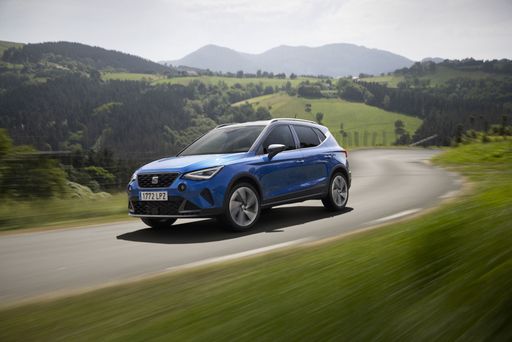 @ SEAT S.A. / SEAT Media Center
@ SEAT S.A. / SEAT Media Center
SEAT Arona
Costs and Consumption
View detailed analysis
Engine and Performance
View detailed analysis
Dimensions and Body
View detailed analysis
SEAT Arona
The SEAT Arona is a cheeky urban crossover that mixes sharp styling with sensible practicality, making it an appealing choice for buyers who want personality without fuss. It’s zippy in traffic, comfortable enough for daily driving, and brings enough character to make routine journeys feel a little more fun.
details @ SEAT S.A. / SEAT Media Center
@ SEAT S.A. / SEAT Media Center
 @ SEAT S.A. / SEAT Media Center
@ SEAT S.A. / SEAT Media Center
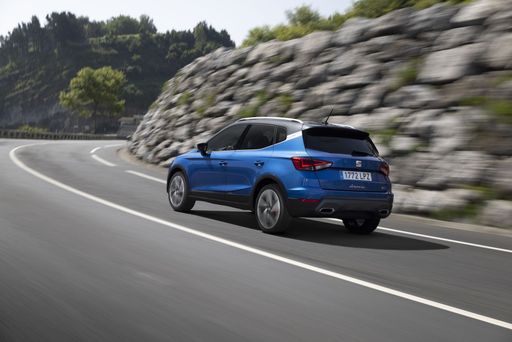 @ SEAT S.A. / SEAT Media Center
@ SEAT S.A. / SEAT Media Center
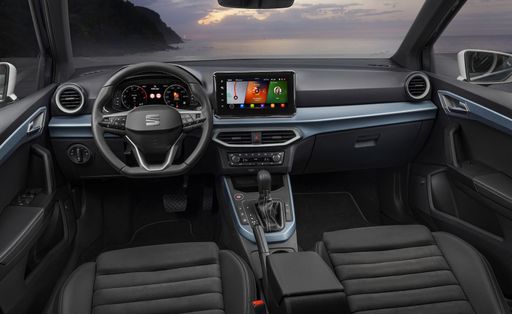 @ SEAT S.A. / SEAT Media Center
@ SEAT S.A. / SEAT Media Center
Volvo XC40
The Volvo XC40 wraps Scandinavian minimalism into a compact, city-ready SUV with a premium cabin that feels both practical and grown-up. It will suit buyers who prize safety, clever storage and a composed ride, proving that small dimensions don't mean small personality.
details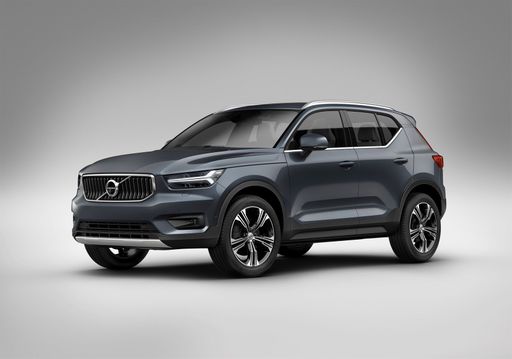 @ Volvo Cars
@ Volvo Cars
 @ Volvo Cars
@ Volvo Cars
 @ Volvo Cars
@ Volvo Cars
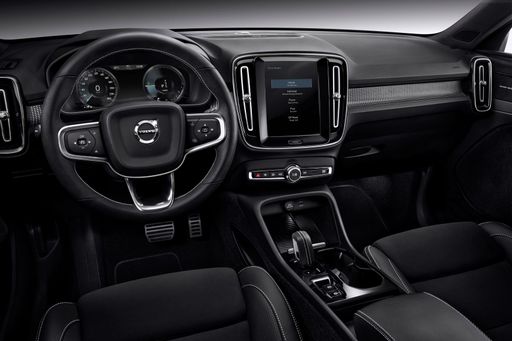 @ Volvo Cars
@ Volvo Cars
 @ Volvo Cars
@ Volvo Cars
 @ SEAT S.A. / SEAT Media Center
@ SEAT S.A. / SEAT Media Center
|
 @ Volvo Cars
@ Volvo Cars
|
|
|
|
Costs and Consumption |
|
|---|---|
|
Price
19300 - 29300 £
|
Price
36800 - 47200 £
|
|
Consumption L/100km
5.4 - 5.6 L
|
Consumption L/100km
6.50 L
|
|
Consumption kWh/100km
-
|
Consumption kWh/100km
-
|
|
Electric Range
-
|
Electric Range
-
|
|
Battery Capacity
-
|
Battery Capacity
-
|
|
co2
122 - 128 g/km
|
co2
147 - 148 g/km
|
|
Fuel tank capacity
40 L
|
Fuel tank capacity
54 L
|
Dimensions and Body |
|
|---|---|
|
Body Type
SUV
|
Body Type
SUV
|
|
Seats
5
|
Seats
5
|
|
Doors
5
|
Doors
5
|
|
Curb weight
1188 - 1268 kg
|
Curb weight
1688 kg
|
|
Trunk capacity
400 L
|
Trunk capacity
452 L
|
|
Length
4153 mm
|
Length
4425 mm
|
|
Width
1780 mm
|
Width
1863 mm
|
|
Height
1537 mm
|
Height
1652 mm
|
|
Max trunk capacity
1280 L
|
Max trunk capacity
1328 L
|
|
Payload
502 - 522 kg
|
Payload
532 kg
|
Engine and Performance |
|
|---|---|
|
Engine Type
Petrol
|
Engine Type
Petrol MHEV
|
|
Transmission
Manuel, Automatic
|
Transmission
Automatic
|
|
Transmission Detail
Manual Gearbox, Dual-Clutch Automatic
|
Transmission Detail
Dual-Clutch Automatic
|
|
Drive Type
Front-Wheel Drive
|
Drive Type
Front-Wheel Drive
|
|
Power HP
95 - 150 HP
|
Power HP
163 - 197 HP
|
|
Acceleration 0-100km/h
8.4 - 11.3 s
|
Acceleration 0-100km/h
7.6 - 8.6 s
|
|
Max Speed
182 - 210 km/h
|
Max Speed
180 km/h
|
|
Torque
175 - 250 Nm
|
Torque
265 - 300 Nm
|
|
Number of Cylinders
3 - 4
|
Number of Cylinders
4
|
|
Power kW
70 - 110 kW
|
Power kW
120 - 145 kW
|
|
Engine capacity
999 - 1498 cm3
|
Engine capacity
1969 cm3
|
General |
|
|---|---|
|
Model Year
2025
|
Model Year
2024
|
|
CO2 Efficiency Class
D
|
CO2 Efficiency Class
E
|
|
Brand
SEAT
|
Brand
Volvo
|
Is the SEAT Arona offered with different drivetrains?
Available configurations include Front-Wheel Drive.
The prices and data displayed are estimates based on German list prices and may vary by country. This information is not legally binding.
